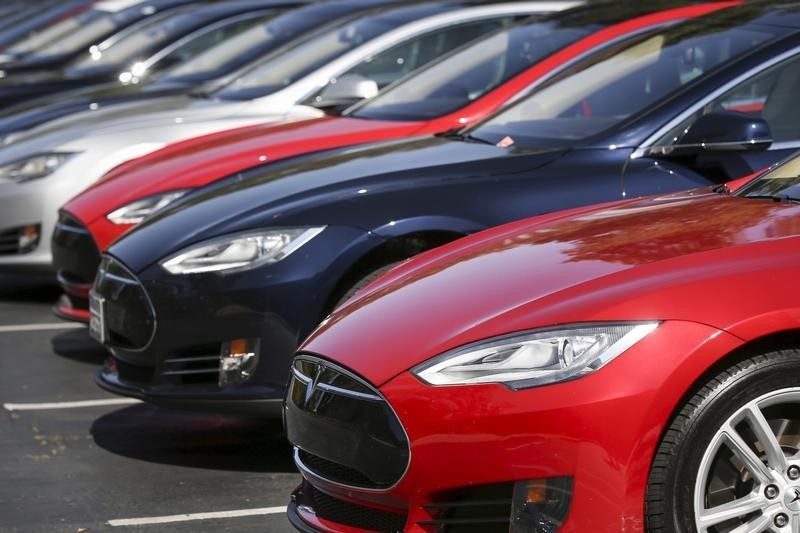By Michael Elkins
President Biden’s administration announced Wednesday morning that Tesla (NASDAQ:TSLA) would be opening part of its U.S. charging network to electric vehicles (EVs) made by rivals as part of a $7.5 billion federal program to electrify the nation's highways. A move that could push the electric vehicle company towards becoming the universal filling station of the EV era and also risks eroding a competitive edge for vehicles made by the company.
According to the announcement, Tesla will open 3,500 new and existing superchargers along highway corridors, as well as 4,000 slower chargers at locations like hotels and restaurants, to non-Tesla customers by the end of next year. To help cut costs on the transition, a White House official said Tesla would be eligible for a subsidy - including retrofitting its existing fleet - as long as its chargers would allow other vehicles with a federally backed charging standard called CCS to charge.
Tesla was "one of the early folks out there in this space. It was critically important to us, that everybody be included in the conversation," White House Infrastructure Coordinator Mitch Landrieu said at a press briefing ahead of the announcement, calling Musk constructive and "very open."
In a conversation with senior government officials last year, Musk said "his intent was to work with us to make his network inter-operable," White House National Climate Advisor Ali Zaidi said.
Opening up access to Tesla's network would be a quick win for an ambitious federal program to build 500,000 EV chargers by 2030, up from 130,000 currently.
Shares of TSLA are up 2.03% in premarket trading on Wednesday.
